





Volyuven
Application instruction:
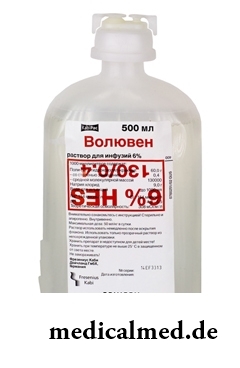 Volyuven – the drug replacing plasma.
Volyuven – the drug replacing plasma.
Form of release and structure
Dosage form – solution for infusions of 6%: colourless or weak-yellow color liquid with transparent or slightly opalescent structure (on 250 ml or 500 ml in the polyolefin "frifleks" containers, in a cardboard box of 15, 20 or 30 containers; on 500 ml in plastic bottles with a loop holder for a dropper, in a cardboard box of 10 or 20 containers).
Content of active agents is 1 l of solution:
- Pauly (Au - a 2-hydroxyethyl) starch (extent of molar substitution 0,4; the average molecular weight (Da) 130 000) – 60 g;
- Sodium chloride – 9 g;
- Na electrolyte + – 154 mmol/l;
- Cl-electrolyte – 154 mmol/l.
Theoretical osmolarity of solution – 308 ¼Äß¼/l, titrable acidity – is less than 1 mmol of NaOH/l, pH – 4,0-5,5.
Auxiliary components: sodium hydroxide, Acidum hydrochloricum, water for injections.
Indications to use
- Prevention and treatment of a hypovolemia of any etiology and the shock which arose owing to blood loss, an injury (including a backbone with injury of a spinal cord), a burn, multiorgan insufficiency, sepsis, acute adrenal insufficiency, in the period after surgery, an anaphylaxis and other states causing a collapse;
- Therapeutic hemodilution;
- Acute normovolemichesky hemodilution;
- Filling of the device of extracorporal blood circulation.
Contraindications
- Hypervolemia;
- Overhydratation;
- Congestive heart failure;
- Intracranial bleeding;
- Heavy disturbances of a blood coagulation;
- The condition of dehydration demanding correction of water and electrolytic balance;
- Use for the patients who are on a hemodialysis;
- The expressed renal failure with an anury or an oliguria;
- Hypernatremia;
- Hyperchloremia;
- Hypersensitivity to drug components.
With extra care it is necessary to use drug at the expressed liver failure.
As clinical data on a possibility of use of Volyuven during pregnancy and breastfeeding are absent, at pregnancy it is possible to appoint drug only in case the estimated advantage for mother surpasses possible threat for a fruit.
Route of administration and dosage
Solution is entered intravenously (in/in) way of long infusion.
The doctor appoints a daily dose and speed of infusion on the basis of clinical indications (blood loss degree, recovery or maintenance of a hemodynamics, hemodilution level (blood cultivation)).
Because of risk of emergence of anaphylactoid reactions, slow introduction of the first 10-20 ml of solution under careful control of a condition of the patient is recommended.
In emergency situations, for bystry completion of volume of the circulating blood and compensation of a hypovolemia, use solution in plastic containers on 500 ml under pressure (to avoid development of an air embolism before administration of solution air needs to be removed from a container).
At completion of volume of the circulating blood the daily dose of Volyuven should not exceed:
- Adults – from calculation for 50 ml on 1 kg of body weight of the patient;
- Patients from 10 to 18 years – on 33 ml on 1 kg of weight;
- Children of 2-10 years – on 25 ml on 1 kg of weight;
- Babies and children up to 2 years – on 25 ml on 1 kg of weight.
If necessary solution can be entered within several days repeatedly. Duration of therapy depends on weight and duration of a hypovolemia, hemodilution, hemodynamic efficiency of means.
Side effects
- Laboratory indicators: perhaps – increase in level of concentration of serumal amylase; at use of high doses – decrease in a hematocrit, proteins of plasma, coagulation factors, cultivation of components of blood; because of decrease of the activity of blood-coagulation factors of VIII (Villebrand) the bleeding time and other indicators of coagulability of blood which in 6 hours after the termination of infusion are recovered to initial level can increase;
- Dermatological reactions: against the background of long introduction of high doses – a skin itch;
- Others: allergic reactions.
Special instructions
During performing plasma substituting therapy of the patient it is necessary to limit in liquid reception. Patients with the expressed renal failures or heart failure are especially subject to risk of an overhydratation.
At heavy dehydration the patient should appoint saline solutions.
It is regularly necessary to control function of kidneys and level of liquid in an organism, to adhere to enough its receipt at patients with a heavy liver failure, disorder of fibrillation, including hard cases of an angiohemophilia.
Injections should be accompanied with control of electrolytes of blood serum.
High doses of Volyuven can exert impact on an agglutination test and at blood typing to yield false positive results. It should be considered at treatment of patients without the established blood group.
Increase in level of serumal amylase against the background of administration of hydroxyethylstarch (GEK) because of a delay of its removal through kidneys is possible.
Use of drug is shown to patients with a diabetes mellitus as it does not influence increase in content of glucose in blood serum after hydrolysis by alpha amylase.
When using in pediatrics the dose needs to be selected individually taking into account indicators of a hemodynamics, weight of a basic disease, a water balance, according to the need for colloids.
Volyuven's portability at use during performing surgeries (except cardiological) at children up to 2 years is comparable using 5% of albumine.
Medicinal interaction
It is recommended to avoid mixing of solution with other drugs. Mixing is allowed in exclusive situations, but in this case it is necessary to be convinced previously of compatibility of medicines (precipitation, opacification), it is good to mix solution and to follow rules of an asepsis.
Terms and storage conditions
To protect from children.
To store in the protected from light, dry place, at a temperature up to 25 °C, it is impossible to freeze.
Solution period of validity: in bottles – 5 years, in containers – 3 years.
If your liver ceased to work, death would come within a day.

All parents are ready to what the baby often and pisat much. Since then, as the absorbing diapers strongly became current...
Section: Articles about health
Musicotherapy – a treatment method which caused and causes a set of a controversy concerning its efficiency. However the facts are relentless: during the numerous researches curative impact of music on an organism was scientifically confirmed. Since then in a number of the countries a method...
Section: Articles about health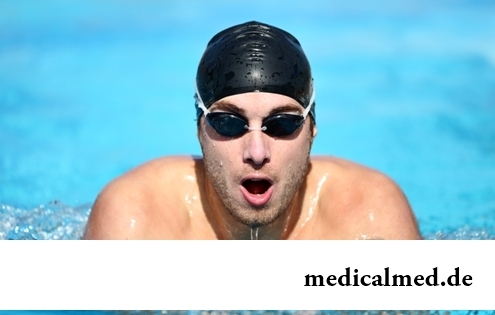
The advantage of swimming for the person is so high that this sport is not only the most popular, but also is widely applied in medicine and rehabilitation processes. If you look for for yourself the occupation allowing pleasantly and to spend time, then swimming with advantage – the fact that it is necessary for you. And give learns several facts about swimming....
Section: Slideshow
Osteoporosis this general disease which main sign is decrease in density of a bone tissue. On width распростран...
Section: Articles about health
Each person supports all life a SARS about 200 times. The peak of incidence falls on cold season, but it is possible to get sick with a temperature and a pharyngalgia, and sometimes and very possibly, even during a heat. The reasons for development of catarrhal diseases exists множество:...
Section: Articles about health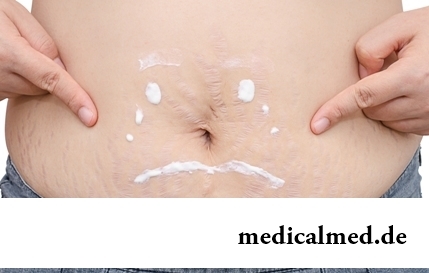
Striya (extension) are the defects of skin having an appearance of direct or wavy strips from 1 to 10 cm long and 1-5 mm wide. In most cases at women of a striya are located on a stomach, hips, a breast or buttocks. At athletes they can appear on shoulders and the internal surface of forearms. At initial stages of development of an extension have red or lilac color, but over time their coloring turns pale, and strips become whitish, getting a nacreous shade....
Section: Articles about health
There comes the season of issues. Many Russians already dream of outdoor recreation, trips, beautiful seaside beaches....
Section: Articles about health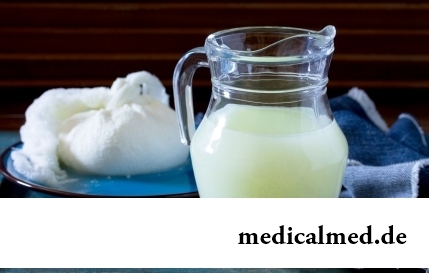
Milk and products of its processing by right occupy one of the main places in a diet of the modern person. They contain proteins, necessary for normal life activity, fats, vitamins and microelements, and are an important part of various medical diets....
Section: Articles about health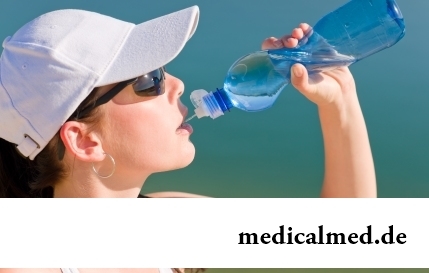
It is known that the person for 80% consists of water which participates in all processes of an organism. The person loses liquid daily – as a result of sweating, breath, an urination, and its insufficient completion due to various reasons can lead to dehydration of varying severity. Dehydration (dehydration) occurs already in case of loss of liquid in number of 1% of body weight and can result both in easy thirst, and by the death. In time to notice signs обезвож...
Section: Articles about health
Insufficiently strongly expressed sexual desire or lack of satisfaction from sexual contacts can test time from in...
Section: Articles about health
Epilepsy is one of widespread neurologic diseases. Parents, whose children suffer from this illness, should face rumors and delusions, many of which remained since the Middle Ages....
Section: Articles about health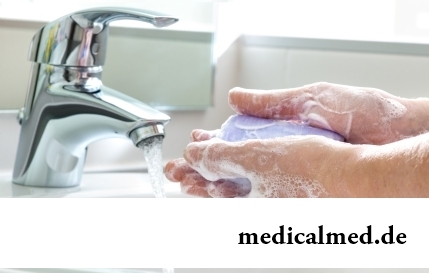
Helminthosis is one of the most widespread diseases. Statistically, any species of helminths infected every third inhabitant of the planet. Most of specialists even consider these data strongly underestimated: some uninvited "cohabitants" do not cause the carriers serious troubles, and patients just do not see doctors. The situation is aggravated also with the fact that people know about specifics of similar illnesses very little. At many presence of worms is strong ассоциир...
Section: Articles about health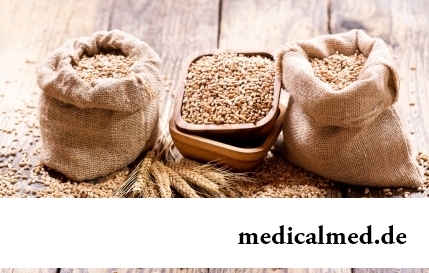
The concept "gluten" (differently, a gluten) combines group of the proteins which are a part of rye, barley and wheat. For most of people упот...
Section: Articles about health
Eyes – one of the most vulnerable areas on a face therefore age changes concern them first of all. Whether it is possible to keep look youth for many years and what procedures are offered for achievement of this purpose by cosmetologists? And maybe, only thing of a vari...
Section: Articles about health
All like to sing. Small children with pleasure are engaged in a vocal, not especially thinking of hit in a melody. Adults most often hesitate, being afraid to show lack of talents in this area, and it is vain: singing is very useful for health....
Section: Articles about health
Traveling all over the world, many try to try the most exotic dishes of national cuisines. Exists even so-called died away...
Section: Articles about health
In consciousness of our many compatriots idea that folk remedies if are no more effective, than medicinal "chemistry" strongly took roots, then are precisely less harmful. Unfortunately, it is not always fair: some receptions treating...
Section: Articles about health
It would seem, to buy drugs in Moscow does not make a problem – a drugstore, and not one, is available for each resident of the capital within walking distance. And, nevertheless, Internet drugstores become more popular – what it is possible to explain such phenomenon with? Actually there is a lot of reasons and if to formulate them it is short, then the most suitable word will be - "conveniently". We suggest to get acquainted in more detail with pluses and minuses of online drugstores that buying drugs, not to make the wrong choice....
Section: Articles about health
Each person has easy indispositions which he transfers "standing", trying not to ask for medical care. Argu...
Section: Articles about health
Each of us repeatedly noticed that the people having the same passport age are sometimes not similar on one-years at all. One at the age of 40-45 years already looks almost an old man, and another and in 60 is young, vigorous and full of life. The matter is that state нашег...
Section: Articles about health
According to doctors, more than a half of men of 25-50 years suffer from frustration of the urinogenital sphere, but the minority sees a doctor from them. And in vain - even the insignificant discomfort in the field of generative organs can serve as a symptom of an illness fraught with grave consequences for health. So - after 40 years - it is easy for most widespread disease of the sexual sphere of men to pass the first symptoms of prostatitis (weight in the bottom of a stomach, decrease in a libido), having written off for overfatigue and fatigue. Let's consider...
Section: Articles about health
On the head of the person about one million hair follicles, or as they are called still, hair bulbs are located. At the moment he is born...
Section: Articles about health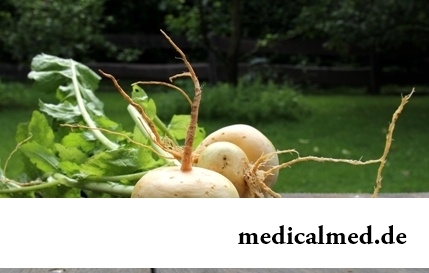
Turnip, radish, horse-radish – once these and other products enjoyed wide popularity at our ancestors, being not only the food sating an organism but also the medicines curing of many diseases. Unfortunately, having given the use of some of them...
Section: Articles about health
Visit of doctors – business not the most pleasant, and many people do not hurry to undergo necessary planned inspections. Such behavior is extremely thoughtless and improvident. Our health is necessary not only to us: wellbeing of darlings, children, grandsons and aged parents directly depends on as far as we are vigorous and able-bodied. Therefore in time to be inspected – a duty of any modern person. Specialists consider that 7 regular surveys and di are especially necessary for women...
Section: Articles about health
Statistically, in Russia about 34% of citizens smoke. Most of consumers of tobacco has problems about health sooner or later...
Section: Articles about health
The fatigue, sleep debt, disturbances of food, bad mood, vagaries of the weather – all these circumstances badly affect our appearance. Especially the person suffers: skin becomes flabby, loses healthy color, becomes covered by wrinkles, zones of hypostases and t appear...
Section: Articles about health
EKO, or extracorporal fertilization - a method of treatment of infertility which became the reason of a set of broken-down copies in due time accused the people working on its creation neither more nor less of rivalry good luck. Already very few people deny the right of a method for existence, and to surprise nobody with "children from a test tube". And nevertheless, a certain magic in the procedure of artificial fertilization is, process of origin of new life is always a secret, and even it р now...
Section: Articles about health
